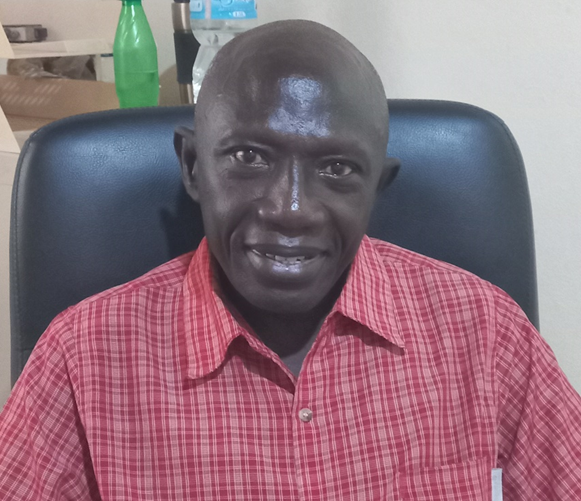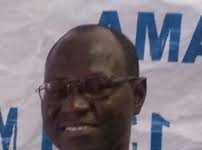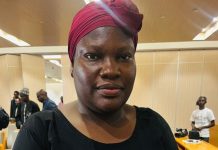By Assan Bah
Four years after The Gambia passed the Persons with Disabilities Act, 2021, designed to safeguard inclusion and human rights, many deaf and hard-of-hearing Gambians say the promises of the law remain largely unfulfilled.
The Act, a piece of legislation assented to by the President, was hailed at the time as a landmark step toward equality, recognizing sign language and mandating access to education, health care, and employment. But the reality, according to disability advocates, is that old struggles continue with little progress on implementation.
“Sign language has been our problem ever since, and it’s the only communication channel between the deaf people and the hearing,” said Dodou Loum, executive director of the Gambia Association of the Deaf and Hard of Hearing (GADHOH). He argued that lack of recognition for sign language remains the biggest barrier, cutting deaf Gambians off from education, health services, employment, and even transportation.
Although a survey was conducted to estimate the number of deaf people in the country, Loum said the community remains sidelined as a minority group. He added that while GADHOH developed an internal communication system for its members, it is insufficient without official government recognition.
“Sign language has to be recognized by the government and taken seriously,” Loum said. “It is the only way the hearing can generate information from us.”
The Act required the Ministry of Basic and Secondary Education (MoBSE) to design policies promoting special-needs education, including sign language in schools. Yet Loum said no such policies exist.
“MoBSE has not implemented any language development policies,” he said. A World Bank–backed effort to design a sign language curriculum lapsed without results, he added.
Across the country, there are fewer than ten institutions offering deaf education. Regions such as Central River Region (CRR) have none, forcing parents to send children to the coastal Kombos, often at great financial strain.
Even in existing schools, qualified sign language teachers are rare. Loum said many deaf children are placed in mainstream classrooms where they “leave with only an impression of attending school, not learning anything.” He called for urgent investment in new schools in rural areas and more training for sign language teachers.
Despite deaf education dating back to 1984, not a single deaf student currently attends the University of The Gambia. “Every year thousands graduate, but not a single deaf person there,” Loum said. “Authorities have not considered this disadvantage as a fundamental human right.”
The Act also tasked the government with ensuring vocational rehabilitation for persons with disabilities. But Loum said deaf youth face major barriers in apprenticeships and business training.
“Students learning tailoring or welding often abandon their businesses due to lack of customers,” he said, adding that many end up as laborers, domestic workers, or cooks — often underpaid and exploited. Families, he noted, sometimes prioritize hearing children’s education over deaf children’s, fearing limited prospects.
Health care and public services remain out of reach for many. Loum said there are no interpreters in hospitals, courts, or law enforcement agencies.
“They always say we need interpreters, but I doubt that, because they have not taken any step to provide them,” he said. “Some institutions only invite a deaf person to interpret at events. What do deaf people benefit from that? Nothing. Things should be made real.”
Television sign language interpretation, he added, serves only educated deaf people, while the uneducated remain uninformed.
Loum also criticized lawmakers for failing to press the government to implement the Act. “When a law is enacted, it has to be implemented. We all celebrated its enactment. How long do we have to advocate?” he asked.
The National Human Rights Commission (NHRC) echoed these concerns in its 2024 State of Human Rights Report, noting “significant challenges” in implementing the law. The report highlighted limited schools, employment opportunities, and access to media for persons with disabilities, and recommended sign language interpretation on national broadcasts and more inclusive education.
Muhammed Krubally, principal magistrate at the Banjul Magistrates’ Court and chairman of the Gambia Federation of the Disabled (GFD) and the National Advisory Council for Persons with Disabilities, said most provisions of the Act remain on paper.
“No institutions have employed sign language interpreters,” he said. “This grossly violates the fundamental rights of the deaf and hard of hearing.”
He noted that fewer than 10 trained interpreters exist in the country, none employed by hospitals, courts, or schools. Nor, he said, has the government allocated funding for training or deploying interpreters.
“There are no functional disability desks in key ministries as required by the Act,” Krubally said, adding that even employment quotas for persons with disabilities have not been honored.
The barriers are not abstract — they shape lives.
Alagie Ceesay, a graduate from Mariama Kunda, left school in 2020 and enrolled in an electrical engineering course at USET. He dropped out after a year due to financial constraints and has since been overlooked by employers.
“I am currently not engaged in any gainful work,” he said. “I really want to continue my studies. When I get support, I even plan to go to the Gambia College.”
Mariama Suwareh, from Brusubi, graduated from secondary school in 2023. Her parents encouraged her into tailoring, one of the few trades available for the deaf, though it was not her choice.
“I wanted to do other things after school, but my parents asked me to do tailoring,” she said. “I now want to work instead of only sitting at home idling.”
Advocates say the Act has potential to transform lives, but only if implemented.
“The GFD and Disability Council, with our partners, are calling for effective implementation of the rights and inherent dignity of persons with disabilities,” Krubally said. “Just ensure the full realization of the Act, without discrimination of any kind.”
For many Gambians living with disabilities, the wait for inclusion continues — four years after the law that promised it.



















